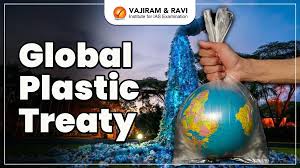The Nigeria Geological Survey Agency (NGSA), says the agency is willing to collaborate with global agencies and other relevant stakeholders to improve laboratories.
This according to the agency is to enable them conduct mineral sample tests.
The Director-General of the agency, Dr Abdulrazaq Garba said this in an interview with the News Agency of Nigeria (NAN) in Abuja.
Garba said the collaboration would enhance ideas and experiences in research process, adding that the agency runs some tests on minerals collected from fields and send to laboratories for sample.
He said that the agency took the minerals to other countries for test, after testing them in Metallurgical Development Centre in Jos, Plateau and Kaduna states for an experiment.
According to him, we do some sample tests on this minerals collected from the field by sending them to different laboratories both local and global.
“A tree does not make a forest, the NGSA work with foreign agencies, Ministry of Mines and steel Development, agencies under the ministries and other stakeholders to ensure that our work is effective.
“Sometimes, we take the samples to laboratories outside the country.
“The essence of taking some of these samples to overseas is to know their own research results and be able to compare it to the ones taken to Jos or Kaduna for experiment.
“By doing the experiment, we are helping in standardising our own laboratories with international laboratories,’’ he said.
Garba said that the agency had succeeded in collaborating with Colton University in Western Australia.
He said that the university had been producing services and some training facilities for some of the NGSA members of the staff.
He said that the agency had been able to develop the capacity of some core staff in that area.
“On a lighter note, when we meet with some Australian ministers, we found out there is a gender bias system for the females in geo-chronological system.
“When we came back, we decided to employ more female staffers, trained them on the job and ensure that they are more knowledgeable in that aspect.
“We have collaborated with the Ministry of Agriculture and Rural Development in the aspect of geo-chemical mapping.
“The idea for the partnership is that geo-chemical mapping is not just essentially for exploration but can also be used for agriculture, environment and for land use planning.’’
According to him, in the aspect of land use planning, if there is potential for mineralisation in a particular area, there is no point in putting an estate in such place.
“That is how the interaction works together. That is why we will continue to strengthen our collaboration.
“Our collaboration with all these ministries and agencies is very robust and has helped the agency to actualise its goals,’’ he said.
The director-general said that the NGSA provides services on geological mapping, geotechnical investigation, hydrogeological mapping, geophysical and geochemical mapping as well as basin analysis.
He said that mineral exploration was about searching for minerals and searching for minerals involved a research.
“Exploration has several stages going by what it means, first is identification that means, you first know that there’s evidence of the possibility of the minerals.
“Then you go through several processes where we have geological mapping which shows the types of the rock and where the minerals are located, proceeding to do further investigation by geo- chemistry.
“The geo-chemistry will tell you the quantity or the availability of the minerals in terms of the chemistry of the elements or the minerals you are looking for.
“Having identified the location, you need to go beyond the surface where you have to apply what we call geo-physics.
“The geo-physics will now give information about the body or the host of the mineral which is down below, he explained.
Garba said that the mineral exploiration processes was the reason for the effective collaboration with both local and international institutions to enable achieve best standard practices.






